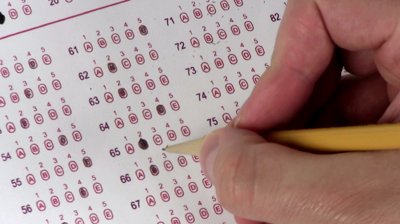Cheating can be a simple enough thing to do. Look over someone’s shoulder, or even straight at their paper if they failed to cover it up. If you didn’t study for the test, it’s a simple way to guarantee yourself a good grade with no effort involved, right?
Dead wrong.
Cheating is a dishonest practice, which promotes laziness and last-minute action over preparation, planning, and genuine learning. While it may seem like a good idea to start with, in the long run it’s exceptionally harmful, assuming the immediate consequences of cheating don’t already bite you in the butt.
The academic integrity policy at Westwood states that any cheating will result in the assignment being marked as a “0” in the gradebook, and a referral form of the cheating incident will be placed on your file permanently. Any ideas of getting good grades will be dashed by a permanent mark on your record. This punishment may be accompanied by mandatory Saturday School/Saturday D-Hall, removal from organizations requiring an honor code (this includes organizations like StuCo, NHS, and the IB Diploma Programme), and even suspension.
When a person cheats, they don’t really learn the material; they only know the answers to the test. This lack of education can lead to serious gaps in learning and knowledge, and when you reach college or are seeking employment, you’re sure to run into a brick wall in the workplace. There are no tests in the office, and looking over into your co-worker’s cubicle will only net you a restraining order. Keep your eyes on your own paper and keep working at it. It may seem harmless, but it is never worth the stain on your honor.








